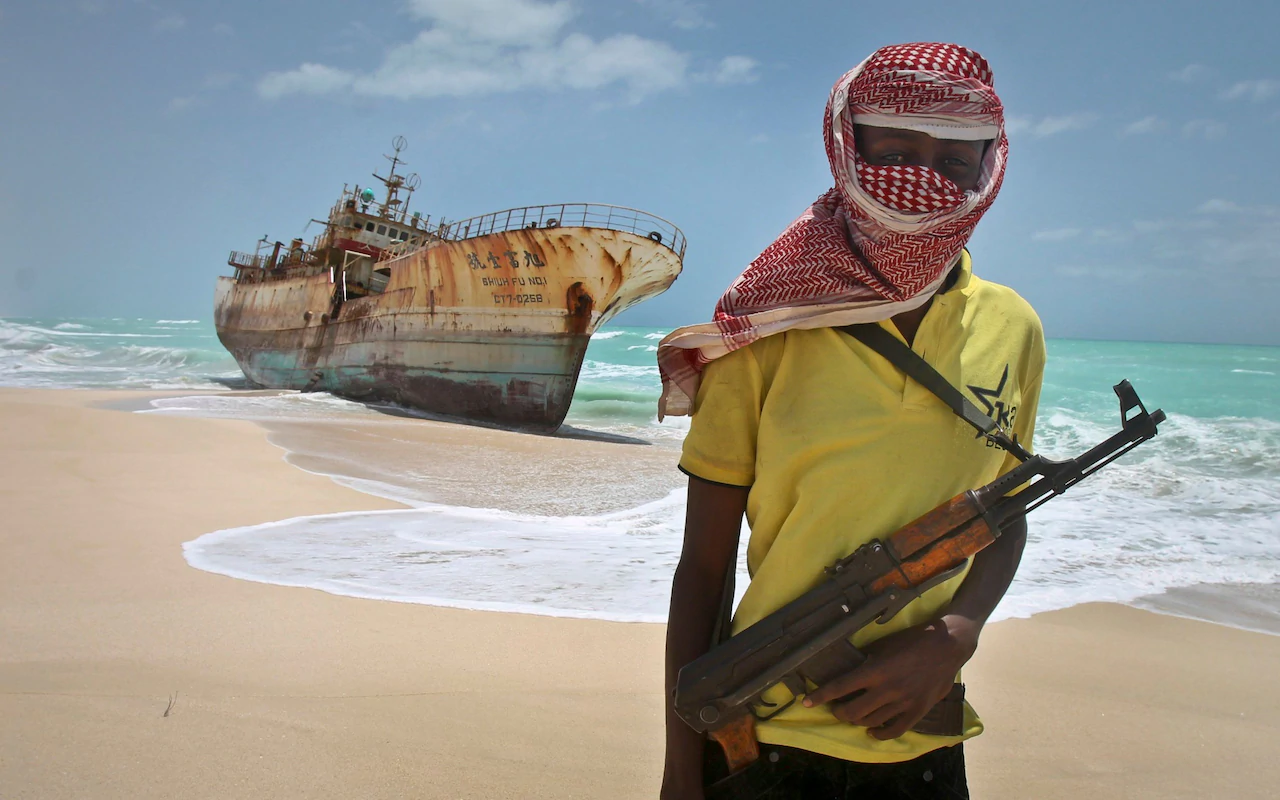
A decade ago they were the buccaneering capitals of the 21st century, haunts of modern-day Blackbeards armed with Kalashnikovs rather than cutlasses.
Today, Somalia’s once-lawless pirate towns are aiming for a more honest future – as freight ports.
Three of the most notorious pirate havens – Hobyo, Eyl and Garacad – are all now earmarked for port construction projects, which will see them cater to the shipping trade they once preyed upon.
It is hoped the ports will finally bring prosperity to the so-called “pirate coast”, which lies on one of the most remote and impoverished parts of Somalia.
“With this project, Somalia will firmly establish itself a key hub on the global maritime network,” said Abdisabir Shurie, the minister of ports and fisheries for Somalia’s Galmadug state, which is behind the Hobyo project. “The investment will create thousands of jobs for the Somali people and opportunities for businesses.”
During the peak of the Somali piracy crisis from 2008-2012, towns like Hobyo, Eyl and Garacad earned hundreds of millions of dollars in ransoms from hijacked ships that were kept anchored offshore.
From 2012 onwards, however, the income from piracy all but dried up as ships in the Indian Ocean began carrying armed guards, making them much harder to hijack.
Local politicians and business leaders now hope to rebuild the ports as part of wider plans to improve Somalia’s infrastructure, which has suffered from decades of civil war.
In November, Galmadug State signed an agreement in London with a consortium of British, Somali and Turkish firms for the port project in Hobyo, which will include a deep-water dock and a business zone.
It could provide a much-needed freight link to towns in the Somali interior, and also east to neighbouring Ethiopia, which is landlocked.
In the northern Somali state of Puntland, officials signed a deal last year with the China Civil Engineering Construction Corporation, a major global contractor, to build a new port and fishing facility.
Meanwhile, a Turkish construction firm has a £30m project to build a new port and road links into Garacad, 70 miles south of Eyl. All three projects could bring much-needed employment for local youths, some of whom grew up at a time when piracy appeared to be one of the few ways of earning a decent living.
“This is great news for our area,” said Said Osman, a liaison officer with the Galmudug Maritime Police, a security force set up to combat piracy. “Today the piracy is much reduced, but there is always the potential for it to return, as a lot of the youth have no work.”
The success of such schemes is not guaranteed. Somalia’s local politicians often have a tense relationship with the central government in Mogadishu, and major infrastructure projects sometimes fall victim to political infighting.
While security nationwide has improved in the last decade, the Islamic militant groups al-Shabaab is still active in many rural areas, including parts of the coast south of Hobyo.
In 2019, a Maltese construction manager employed on a UAE-run scheme to develop a port in the Puntland city of Bossaso was killed in targeted assassination claimed by al-Shabaab. The group, which opposes the presence of Westerners in Somalia, claimed to have earlier warned him to leave.
Somalia’s pirate gangs were originally formed by groups of disgruntled fishermen, who were upset at foreign trawlers poaching the country’s rich and unpoliced fish stocks. The gangs began by simply robbing passing fishing vessels, but soon realised the money-making potential to be made in hijacking and hostage-taking.
By the late 2000s, the trade was attracting hardened militiamen, who would range thousands of miles out to sea in search of prey. While most of the pirate kingpins have now retired, some have simply diversified into other lines of business, both legitimate and otherwise.
One is Mohamed Osman Mohamed “Gafanje”, named in UN Security Council reports as a Hobyo-based pirate kingpin. He officially retired from piracy to become a legitimate businessman, but security sources have told The Telegraph that he moonlights as a weapons dealer and general logistician to al-Shabab.
“Gafanje is still around, and thinks the port at Hobyo will give him good business,” said one source. “He’s all involved in all kind of enterprises these days and will probably buy many trucks to go to Ethiopia.”
